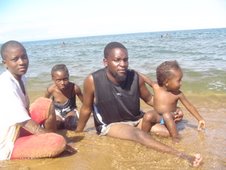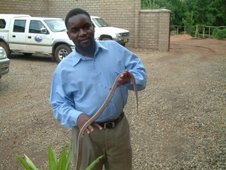UNESCO recognizes Lhomwe cultural heritage
by Hastings Maloya
A break through!
It is no longer a forgotten tribe. After reviving its cultural beliefs, traditions, language, songs, dances and the known unique cultural living, Lhomwe is now proudly moving towards being positioned on the international map, courtesy of the support from United Nations.
Through its Educational, Scientific and Cultural Organisation (UNESCO), the world body has supported the inventory of intangible cultural heritage of the Lhomwe culture on a grass roots level. A three-week inventory through an intensive research and field work in Mulanje, Thyolo, Chiradzulu, Zomba and Phalombe districts has unearthed the unique living of the Lhomwe people. Their heritage is now documented and a recollection of the way of life can easily be traced.
This follows a project on “Community Based Inventory of Intangible Cultural Heritage” funded by UNESCO in collaboration with the Flanders Fund-In-Trust Cooperation. This is a pilot project in six selected countries in Sub-Saharan Africa which include Botswana, Lesotho, Malawi, Swaziland, Uganda and Zambia.
In Malawi, the Lhomwe community was chosen largely because, unlike in other regions where similar activities have been done before, very little if any, had been done to expose the culture of southern region at global level. And Lhomwe was seen to be better organised through its cultural heritage grouping, the Mulhako wa Alhomwe.
The project was coordinated by the Ministry of Tourism, Wildlife and Culture.
Speaking at the official launch of the project, which started with a capacity building workshop for community representatives who did the inventorying, former Deputy Minister of Tourism, Wildlife and Culture Hon. Shadreck Jonas said this was a landmark in the history of Malawi that culture and cultural heritage can be systematically and professionally documented as this will help to maintain our history for the sake of the future generations.
“In most countries, cultural heritage is well documented to the extent that one can learn, know and understand any cultural belief by reading in books – a thing that has been missing in Malawi,” said Hon. Jonas adding that it was exciting now that the Lhomwe heritage has finally been recognized internationally.”
“Lhomwe was selected because it has a well structured body as Mulhako wa Alhomwe which aims at reviving the Lhomwe culture and traditions,” he said while thanking UNESCO for the financial support towards the project.
The workshop, which was facilitated by the Director of Culture in the Ministry Dr. E. Chindebvu, UNESCO’s Director of Culture in Southern Africa Mrs. Mulekeni Ngulube from Zimbabwe and Cultural expert from UNESCO Mr. Stephen Chifunyise, was the key to the opening of new horizons.
Mr. Lovemore Mazibuko, Acting Director of Culture responsible for Museums, who facilitated the project, described it as a great success and expressed hope that it will enrich Malawi’s cultural heritage with UNESCO.
Among several other things, the inventory looked into oral traditions and expressions that include proverbs, riddles, tales, nursery rhymes legends, myths, epic songs, poems, chants and prayers.
“We also looked into performing arts,” says Owen Stima one among the young Lhomwe people that conducted the inventor. “We also concentrated on social practices, rituals and festive events,” adds Sitima. These includes worship rites, rites of passage, birth, weddings and funeral rites, oaths of allegiance, traditional legal systems, traditional games and sports, kinship rituals, kinship ceremonies, settlement patterns, culinary traditions, seasonal ceremonies, practices specific to men, practices specific to women, hunting, fishing and gathering practices.
Traditional Authority Chikumbu says this inventory and the findings shall help young Lhomwe people to appreciate their culture and be proud of their tradition. She was excited with the inventory on traditional ecological wisdom, indigenous knowledge, knowledge about local fauna and flora, traditional herbing systems, rituals, beliefs, initiation rites, cosmologies, possession rites, social organizations and festivals.
In traditional craftsmanship, the inventory looked at tools, clothing and jewellery, costumes and props for festival of performing arts, storage containers, transport and shelter, decorative art, rituals objects, musical instruments, household utensils and toys for amusement or education.
Mulhako wa Alhomwe is meanwhile working on means on how to protect the intangible cultural heritage by allowing practices, representations, expressions, knowledge, skills and associated manifestations to be sustainably maintained by the communities, groups and or individuals concerned.
Data gathered is electronically recorded and transcribed into a written form without changing its meaning. The documented information shall be given to the Ministry of Tourism, Wildlife and Culture with another copy kept in the Museum of Malawi and the other copy to Mulhako Wa Alhomwe for reference.
I WELCOME you!
Dear Good People,
I warmly welcome you to my Blog and it is my profound hope that you will find it useful and worth the time you spend on it. On this Blog, I have posted some of the articles and pieces that I have writen just for record purposes and also for sharing. You might have read these articles in the papers but it could also be possible that you missed them.
Please be advised that these are my toughts and purely my opinions. You are free to comment on them and/or to critic them. I will appreciate any of your comments.
Thank You.
Hastings Maloya
+265 888864241 or +265 999950953
I warmly welcome you to my Blog and it is my profound hope that you will find it useful and worth the time you spend on it. On this Blog, I have posted some of the articles and pieces that I have writen just for record purposes and also for sharing. You might have read these articles in the papers but it could also be possible that you missed them.
Please be advised that these are my toughts and purely my opinions. You are free to comment on them and/or to critic them. I will appreciate any of your comments.
Thank You.
Hastings Maloya
+265 888864241 or +265 999950953
About Me
- Hastings A. MALOYA
- Mulanje, Southern Region, Malawi
- Is an experienced journalist, writer, specialist in development communications, public relations, publications, desktop publishing, information technology, photography, environmental education and rural development. Hastings Maloya is currently working as Programme Officer responsible for Environmental Education, Awareness and Communications for the Mulanje Mountain Conservation Trust (MMCT) since September 1, 2002. Hastings, comes from Tradional Authority Mabuka in Mulanje District, is an Adventist Christian, and has two daughters Eva and Eve.
Subscribe to:
Post Comments (Atom)








No comments:
Post a Comment